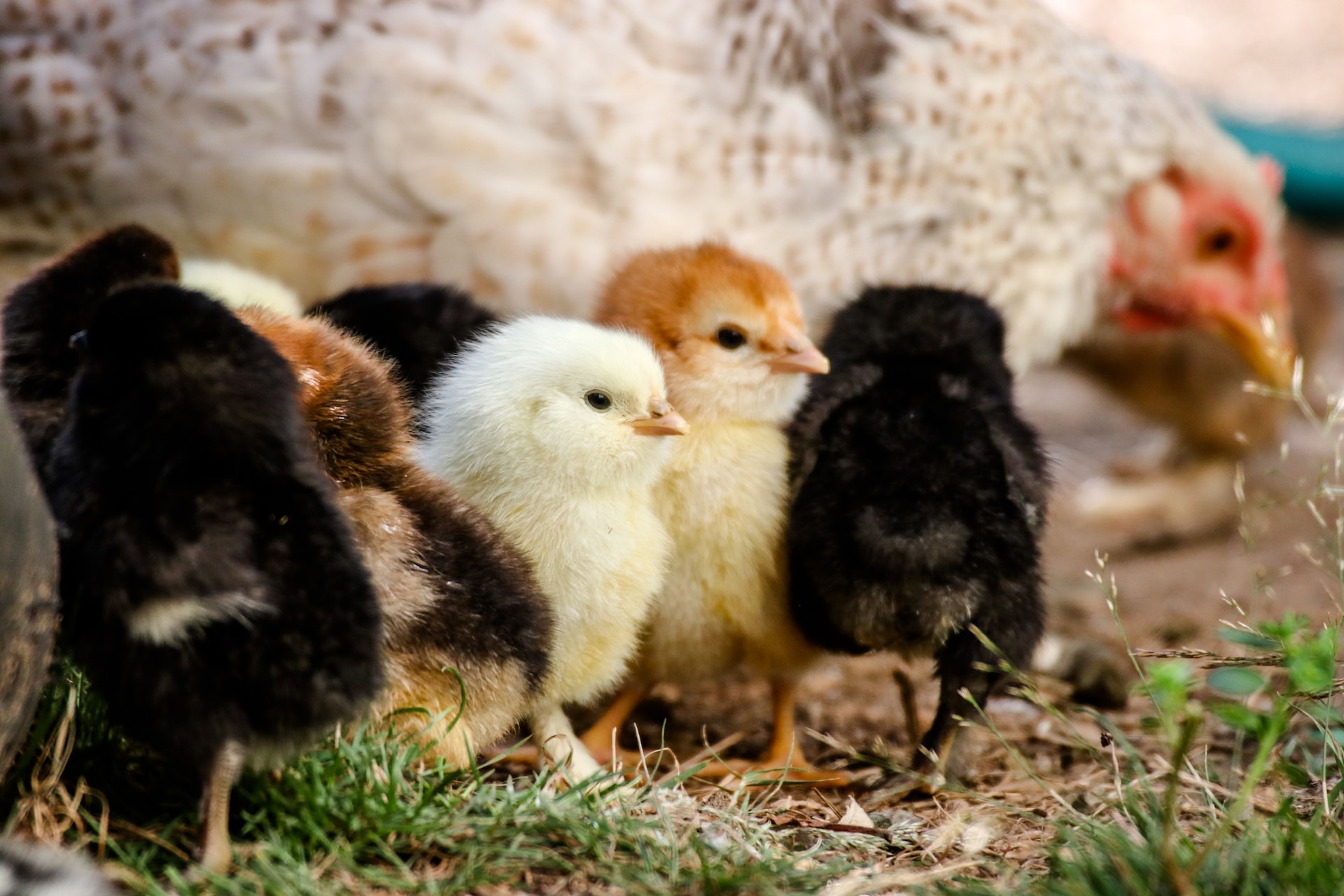
Hatching Chicken Eggs Naturally: An Easy Guide
We are reader-supported. When you buy through links on our site, we may earn affiliate commission.
Have you ever considered hatching chicken eggs naturally? It’s a surprisingly easy process for how rewarding it is. You only need a hen and some fertilized eggs to get started. After that, it’s simply a matter of time before you welcome new chicks.
Choosing Chicken Breeds
Every breed of chicken lays at different paces, so you should look for one that aligns with your needs. It may be better to get a highly productive one to play it safe, as you’ll have a better chance of getting chicks. Plus, you can sell or cook any extra eggs. It’s better for the environment and can generate extra disposable income.
You have to consider your available space when you’re hatching chicken eggs naturally. Plenty of breeds need specific laying environments. For instance, Leghorns produce 280 extra-large eggs annually on average but need to be free-range. Think about your available space, the number of hens you’ll have and how many chicks you want. You should be fine if you’ve already established a flock — starting fresh takes a bit more care.
Perfecting Nesting Conditions
Your chickens will only lay if they feel safe and comfortable. Providing them with the perfect nesting conditions can help encourage them to lay and adequately care for their eggs. You’re more likely to successfully hatch eggs naturally if you give them proper support.
Hens prefer nesting in partially enclosed areas with low light. You can use a special nest box, but a milk crate or wooden box can work just as well. Whatever you use, make sure it’s stable — your chickens may accidentally crush their eggs if they tip their container.
Your hens will usually keep their eggs warm and humid enough, but you must also ensure the coop’s temperature is comfortable for them. Also, you should make sure their space is relatively quiet at night. Any other things like perches or feeders are essential, but note that brooding hens won’t use them as much.
Fertilizing Eggs
Having a rooster is the fastest way to get fertile eggs. A single hen can start producing them after two to three days with one, although it typically takes four to seven if you have more. It may also take longer if your birds are older. Simply introduce a sexually active male into the flock and wait for a week or two.
Alternatively, you can get pre-fertilized eggs. It’s an excellent option if you don’t want to deal with a rooster or if you’d like more control over the situation. You can be certain about the number of fertilized eggs you’re getting, which is excellent for those who only want a few. You can sneak a pre-fertilized egg into a hen’s nest at night because they’re typically more docile then. You’ll need a broody hen to watch over them to hatch them naturally.
Getting a Broody Hen
A broody hen is the perfect option for hatching chicken eggs naturally. Basically, it’s a mother hen that only wants to sit in its nest. Although they’re better than incubators, they’re pretty uncommon. Mainly, it’s because hens stop laying eggs when they become broody. Most farmers and commercial operations raise them for profit, so they don’t appreciate it when their product suddenly becomes unavailable. As a result, they bred out the behavior from most breeds over the years.
Luckily for you, there are ways to encourage the behavior. It’s instinctual, so you can coax it out of them with enough effort and patience. You first must prepare a separate warm and dark coop to create optimal nesting conditions. Then, you put fake eggs in the nest. Spring and summer are when hens naturally brood, so try to entice them then for the best chances. There’s no guarantee, but you can use these tips to significantly increase the possibility of success.
Although it can be challenging to spot if you’ve never seen it, a few telltale signs become apparent when you’re looking for them. The most obvious one is that it’ll stop laying. Also, it’ll remain in its nesting box for most of the morning instead of getting up. These behaviors will usually get more pronounced as time goes on.
Caring for a Broody Hen
Broody hens are very protective of their eggs, so they mainly stay put. They’ll only leave for the essentials, so keeping them healthy is up to you. Although they likely still have access to food and water, it may be distant from them — especially if they decide to set up a makeshift new nest somewhere. Move some close to your bird so it doesn’t have to travel far. Make sure there’s a foot or two of space between everything so it doesn’t accidentally knock into anything.
You’ll have to be careful when dealing with a broody hen because they can become aggressive when you approach them. Puffy feathers and a low clucking sound are clear indicators that a mother hen is warning you to keep your distance. It’s mostly a protective behavior, so don’t take it personally — your bird is simply trying to keep its eggs safe.
You shouldn’t have to do much to care for your bird or the eggs because instinct takes over. Just keep an eye on them and watch for unusual behavior or changes. It’s not uncommon for a broody hen to leave the nest before the chicks are ready to hatch, so you may have to step in.
Hatching Chicken Eggs Naturally
Hatching chicken eggs naturally takes around three weeks at minimum. Backyard breeds may need a few more days, so it’s okay if your flock spends longer nesting. Even if it takes more time than normal, you want all of them to hatch on the same day.
Numbering them with a pencil beforehand can help you monitor them — especially if you have multiple broody hens. You need to know when each egg is due to hatch. It can get tricky to keep track of them if you have to consolidate them, so writing on them is always smart.
The mother hen will want space once the eggs reach their due date. While you can keep an eye on it to make sure everything is going well, give it space after about two weeks. Chickens instinctively know when all of their chicks hatched, so they come out when they’re ready. At that point, you can toss any unhatched eggs left in the nest. It’s rare to have every single one come out successfully, so don’t feel discouraged.
It’s common for a hen to remain in the nest no matter what when its eggs are hatching. You may feel concerned about it eating, drinking, or going to the bathroom, but it’s normal for them to stay in the same place for a few days in the final stretch. It can be messy, but it’s a part of nature.
The bonding moments between them can also be beautiful. You may hear slight peeping or your bird clucking softly as its chicks emerge from their shells. They’re basically like words of encouragement — the noise encourages others to hatch.
Caring for New Chicks
After the chicks hatch, you can clean up the nest. You may have to change the bedding if your hen has soiled it. Also, you’ll need to find a use for those leftover eggshells. While you could just toss them, they’re actually beneficial. For instance, eggshells are entirely compostable, so you can use them to fertilize your plants.
You don’t have to do much of anything to care for chicks right after they’re done hatching. They can be particularly vulnerable because they’re so new to the world, but the hens will typically handle most challenges. You’ll probably see them walking around together as their mothers teach them how to be a chicken.
Welcome the Addition to Your Flock
Hatching chicken eggs naturally can feel a bit overwhelming if it’s your first time, but the mother typically handles the entire process for you. Hens can instinctually care for their future chicks — all you need to do is keep an eye on them and make sure everything flows smoothly.
Share on
Like what you read? Join other Environment.co readers!
Get the latest updates on our planet by subscribing to the Environment.co newsletter!
About the author
Maria Visser
Maria serves as the Assistant Editor of Environment.co. A true foodie and activist at heart, she loves covering topics ranging from veganism to off grid living.





